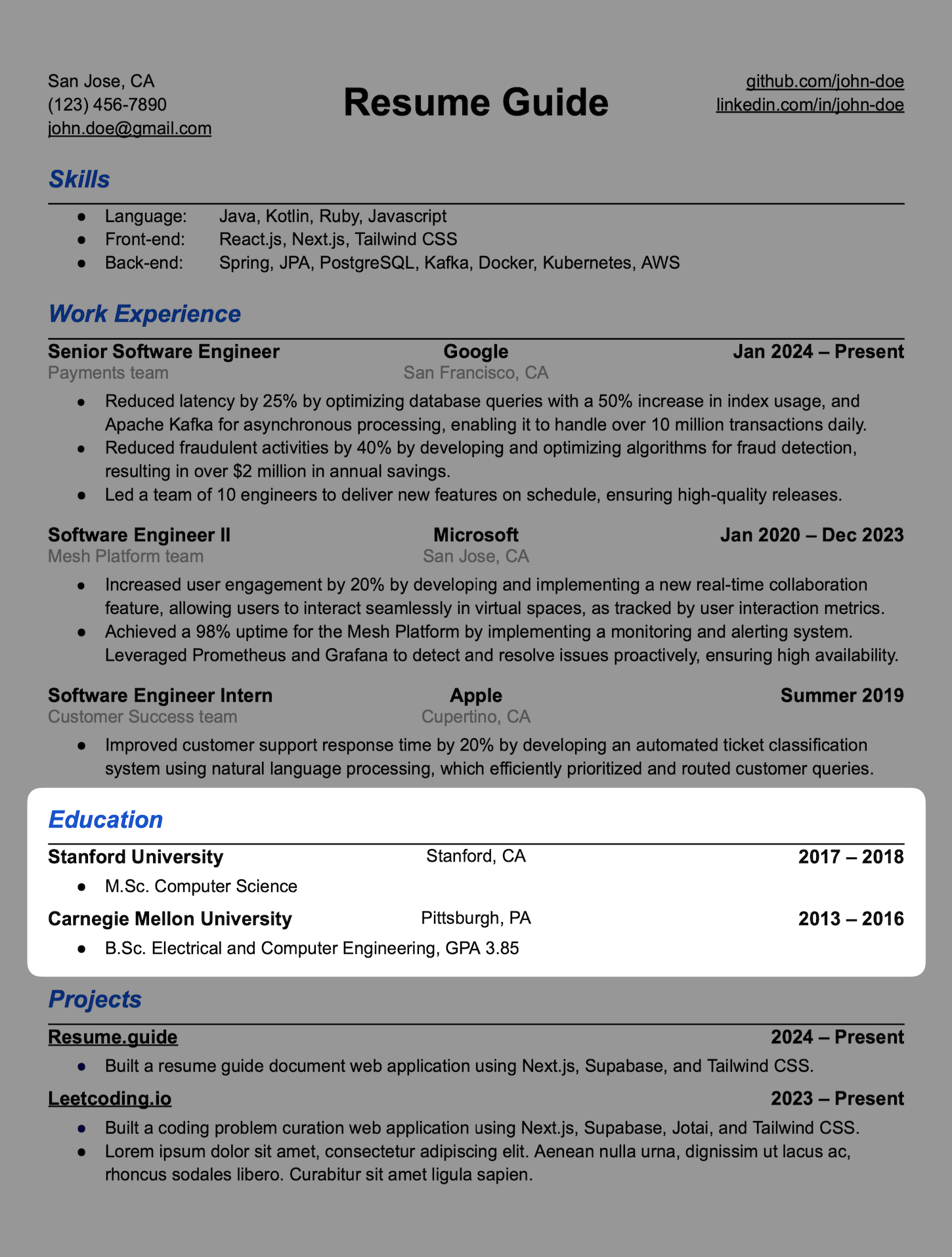🎓 Education
💁♀️ What is the Education Section?
This section provides your academic background.

✍️ Guidelines for Writing
✅ Required Information
- School name
- Dates of attendance
- Major
- Degree
🟨 Optional Information
- GPA (only if above average)
- TA experience (only for CS or Engineering courses)
- Relevant coursework
- Academic awards (Dean’s list, scholarships, etc.)
- Extracurricular activities related to CS/Engineering/Leadership
👩🎓 For Entry-Level
- The Education section is crucial for recent graduates, as it may be one of the few ways to demonstrate your qualifications. Your CS degree or school name still holds significance.
- In the U.S., internship experience and having a CS major are two of the most important factors for new graduates.
- Networking is highly valued in the U.S., so academic background and connections often play a bigger role in hiring decisions compared to other countries.
- If you’ve worked as a TA (Teaching Assistant) for CS or software engineering courses, be sure to include it in the Education section.
- Even if you didn’t do much teaching, TA experience is still valuable for entry-level candidates, as resume reviewers likely won’t scrutinize the depth of your TA responsibilities.
- If you have a CS degree from a well-known school, it’s a good idea to place the Education section at the top of your resume to highlight your qualifications immediately.
👩💻 For Experienced
- The importance of the Education section decreases as your work experience grows.
- If you have more than 5 years of experience, it’s best to only list your school name, dates, major, and degree.
- Significant achievements (e.g., Summa Cum Laude) can still be included if relevant.
⚠️ Important Notes
- Ensure the degree title on your resume is accurate, as many companies verify this during the background check process.
- This verification can occur regardless of the company’s size, as they often rely on third-party background check services.
- If you earned your degree outside the U.S., it’s crucial to provide accurate details, as background check companies often collaborate with local organizations to verify credentials.
- For example, during my own background check, even though I submitted an English version of my degree, the company still contacted my foreign university directly to confirm its authenticity.
- If you have a master’s degree or higher that’s relevant to the role, consider briefly mentioning your thesis.
- For research positions, it’s a good idea to include a separate section detailing your research and publications.
🤔
Reference Check vs. Background Check
- Reference Check: This process happens during the interview stage to verify the candidate’s reputation. Employers typically contact former colleagues or managers via phone or email to ask about performance, work attitude, and communication skills.
- Background Check: This process happens after a candidate receives a job offer and is used to verify the accuracy of information in the resume or application. It’s usually conducted by third-party agencies to check education, work history, certifications, and criminal background.